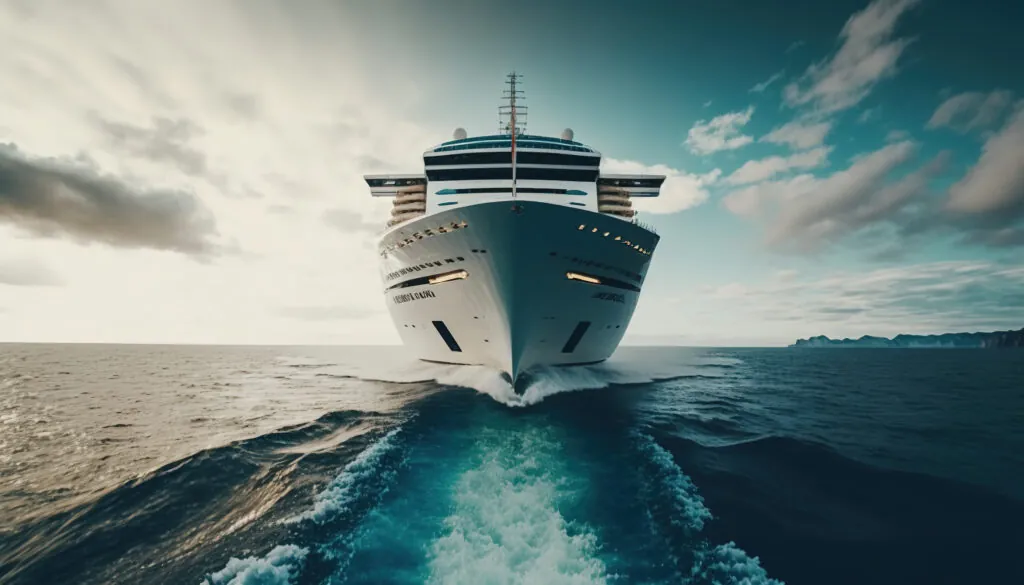How Arbitration Clauses in Cruise Contracts Limit Passenger Rights
Most cruise passengers don’t realize that simply buying a ticket can lock them into a legal agreement they never read. These agreements often contain arbitration clauses that waive your right to sue, remove your access to a jury trial, and force you into a private legal process.

At The Cruise Injury Law Firm, we help injured passengers understand and fight back against these one-sided legal provisions. If you’ve been hurt at sea and are being told you can’t sue — we may be able to help.
What Is an Arbitration Clause in a Cruise Contract?
A Quiet, Private Legal System Designed for Cruise Lines
An arbitration clause is a legal provision that replaces your right to sue in court with a private arbitration process. This process takes place outside of the public court system and is typically handled by a private arbitrator, not a judge or jury.
Arbitration Is Often Required in a Distant Location
Most cruise ticket contracts also include a forum selection clause requiring arbitration to occur in a city far from where the passenger lives — usually Miami, Florida. This imposes additional costs, travel burdens, and time commitments on injured passengers, many of whom are already facing medical bills and lost wages.
How Arbitration Clauses Affect Your Legal Rights
You Waive the Right to Sue in Court
By accepting your cruise ticket, you may be waiving your right to file a lawsuit in your local court system — even if the cruise line was clearly at fault.
You Lose Access to a Jury Trial
One of the most impactful losses is the right to a jury. Arbitration takes place in a closed setting, often without the same transparency, legal protections, or potential for full compensation that you’d receive in court.
The Process Is Often One-Sided
Arbitrators are frequently selected from a panel that works repeatedly with cruise lines. While these professionals are expected to be neutral, the structure of arbitration can introduce bias that disadvantages the injured passenger.
Decisions Are Binding and Final
Perhaps most concerning is that arbitration decisions are final. In nearly all cases, there is no right to appeal, even if the arbitrator’s decision is unfair or based on flawed reasoning.
Are Arbitration Clauses Legal?
Yes — but that doesn’t mean they’re always enforceable. While cruise lines rely on these clauses to shield themselves from lawsuits, there are situations in which the law allows passengers to challenge them.
Can You Fight an Arbitration Clause?
Challenging Enforceability in Court
At The Cruise Injury Law Firm, we carefully examine each case to determine whether the arbitration clause is valid and enforceable. Not all clauses hold up in court.
Lack of Notice
If the arbitration clause was hidden, poorly communicated, or never disclosed at the time of ticket purchase, we may be able to argue that you were not properly notified — and therefore never legally agreed to waive your rights.
Unfair or One-Sided Terms
Some arbitration clauses are so biased or restrictive that courts may rule them unconscionable — meaning they are too unfair to be enforced under the law.
Exceptions Based on the Type of Case
Some legal claims, particularly those involving gross negligence, intentional misconduct, or certain international maritime laws, may fall outside the scope of arbitration requirements.
What To Do If You’re Being Forced Into Arbitration
1. Don’t Sign Anything Without Legal Review
Cruise lines may pressure you to accept arbitration or a quick settlement. Do not agree to anything — especially in writing — until you speak with a qualified maritime attorney.
2. Gather All Documentation
Save your cruise ticket, emails, incident reports, medical records, and any communication with the cruise company. These materials are crucial to evaluating your legal rights and the enforceability of the arbitration clause.
3. Act Quickly Before Time Runs Out
Cruise contracts often impose strict deadlines. You may have as little as six months to file a claim or provide notice to the cruise line. Waiting too long could eliminate your right to compensation.
How The Cruise Injury Law Firm Helps You
Exclusive Focus on Cruise Ship Passenger Claims
Unlike general injury law firms, we focus exclusively on cruise-related injuries. We understand the unique challenges passengers face and the specialized laws that apply to maritime travel.
Expertise in Arbitration Challenges and Maritime Law
We have a strong track record of helping clients:
- Challenge the enforceability of arbitration clauses
- Obtain favorable settlements in arbitration proceedings
- Navigate complex maritime jurisdiction and federal statutes
- Recover damages for injuries, medical costs, emotional trauma, and lost income
Strategic Advantage in Miami, Florida
Since most cruise arbitration is required to take place in Miami, our firm is strategically located near the headquarters of the world’s largest cruise lines and the primary arbitration venues. We know the system, and we know how to fight it — efficiently and aggressively.
Personalized Legal Strategy
We treat each case individually. From your initial consultation to final resolution, we provide responsive communication, transparent legal advice, and relentless advocacy tailored to your situation and goals.
We Don’t Get Paid Unless You Do
We operate on a contingency fee basis. That means there are no upfront costs to you — and we only collect if we win your case or reach a settlement in your favor.
Frequently Asked Questions About Cruise Arbitration Clauses
Can I sue a cruise line if I’ve signed an arbitration clause?
In many cases, the answer depends on the specific wording of the arbitration clause in your cruise contract and how it was presented to you. While these clauses are often enforceable, there are exceptions. If the clause is overly broad, buried in fine print, or deemed unconscionable by a court, you may still have the ability to file a lawsuit. Additionally, if your injury falls outside the scope of the clause — such as cases involving gross negligence or criminal misconduct — you may be able to bypass arbitration entirely. We will examine your situation carefully to determine the best legal path forward.
What exactly does an arbitration clause mean for my case?
An arbitration clause means that instead of having your case heard in court, it must be resolved through a private process known as arbitration. This involves a third-party arbitrator, no judge or jury, and often takes place behind closed doors. Arbitration can limit your ability to conduct discovery, reduce your chances of a full compensation award, and typically offers no right to appeal. Cruise lines favor arbitration because it is faster, more private, and often less costly for them — but it can be disadvantageous to passengers who have suffered serious harm.
Where does cruise arbitration usually happen?
The vast majority of cruise arbitration cases are required to be conducted in Miami, Florida, regardless of where the passenger lives or where the injury occurred. This is due to forum selection clauses built into most cruise contracts. These clauses are enforceable in most jurisdictions, and they create a significant hurdle for passengers who may not have the financial or physical ability to travel. Our law firm is based in Miami, which gives us direct access to local venues, arbitrators, and cruise line counsel — a strategic benefit for our clients.
Is arbitration cheaper or faster than going to court?
In theory, arbitration can be faster than litigation, but that doesn’t mean it’s better. While the cruise line may save time and money, the passenger often ends up with limited discovery rights, lower compensation, and no opportunity to appeal a bad decision. Arbitration proceedings are confidential, which also reduces public accountability for cruise lines. In reality, “faster” can come at the expense of fairness, transparency, and justice. Our firm ensures that even within arbitration, your rights are aggressively protected.
What happens if I refuse to participate in arbitration?
If your cruise contract includes a binding arbitration clause, refusing to participate may result in your case being dismissed unless the clause is successfully challenged in court. However, not all arbitration clauses are valid or enforceable. That’s why it’s essential to speak with a maritime lawyer before taking any action. We will review the language of your contract, the nature of your claim, and any applicable exceptions to determine whether arbitration truly applies or if court litigation is still an option.
Contact The Cruise Injury Law Firm Today
If you were injured on a cruise and the cruise line is telling you that you can’t sue because of an arbitration clause, don’t give up. You may still have legal options — but your time to act may be limited.
Contact The Cruise Injury Law Firm today to speak with a maritime attorney. We’ll review your contract, evaluate your claim, and explain your legal rights — all for free.
We’re ready to help you take control of your case and hold the cruise line accountable.






